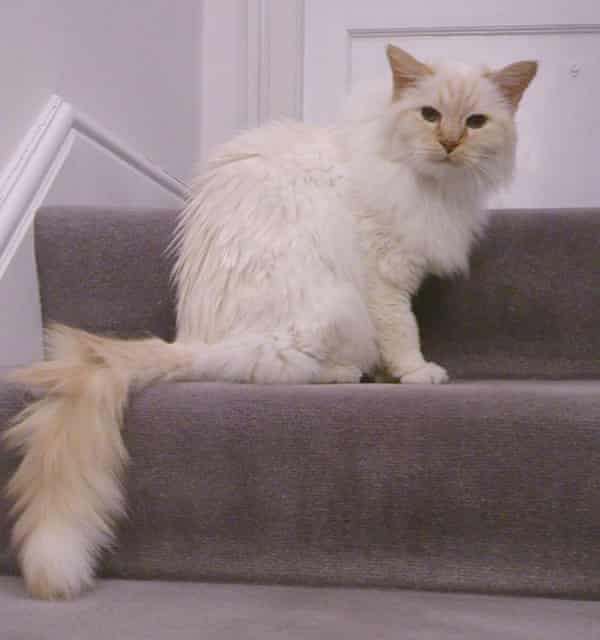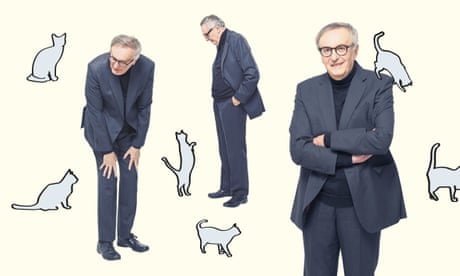Readers of Gray will recognise this book as a postscript or coda to Straw Dogs: Thoughts on Humans and Other Animals, the 2002 bestseller in which he elegantly dismantled the history of western philosophy – with its illusory faith in our species living somehow “above” evolving life and outside the constraints of nature. That book aimed its fire particularly at the prevailing belief of our time: that of the inevitably steady forward progress of humankind brought about by liberal democracy. When the book came out, as George W Bush was demanding “regime change” in Iraq, it struck a particular nerve. In the two decades since, its argument that the advance of rational enlightened thought might not offer any kind of lasting protection against baser tribal instincts or environmental destruction or human folly has felt like prophecy.

That lack of interest in holding on to particular stories has led Gray over the years to some curious places politically. He grew up in a strong old Labour house on Tyneside, where his father worked on the docks as a carpenter and his mother kept the home. Witnessing that close community being broken up in the 1960s – Victorian streets bulldozed, and residents moved into brutal “utopian” housing schemes built under the criminal Labour council leader T Dan Smith – gave Gray a lasting distrust of all grandiose projects selling the idea of progress.
Gray believes that humans turned to philosophy principally out of anxiety, looking for some tranquillity in a chaotic and frightening world, telling themselves stories that might provide the illusion of calm. Cats, he suggests, wouldn’t recognise that need because they naturally revert to equilibrium whenever they’re not hungry or threatened. If cats were to give advice, it would be for their own amusement.
Gray predicted the election victory of Trump in 2016 for something like the same reasons – “the feeling of abandonment, and disrespect in large parts of the working population” had to go somewhere – and suggests that even in the event of a Biden victory next month, those forces will not be silenced. Human beings, particularly in extremis, should never be expected to make rational choices. “As Bertrand Russell pointed out, the first world war, when it started, was welcomed largely as an interruption of boredom.”
He has formed the belief since then that “politics is a succession of temporary and partial remedies for permanent and recurring human evil”. His two central intellectual friendships were with the Oxford philosopher Isaiah Berlin, whose family had fled Soviet Russia, and with the novelist JG Ballard, who spent his childhood in a Japanese prison facility. Both helped to convince Gray that any political movement that believed it possessed a monopoly of wisdom, had gulags or concentration camps priced in. (In his most famous provocation, aping Jonathan Swift, Gray wrote a satirical “modest proposal” that called for the urgent reintroduction of torture to protect human rights in western democracies; Abu Ghraib and extraordinary rendition quickly followed.)
Gray has consistently voted flexibly, for what he sees as the lesser of two political evils at any political moment. “Had I been around, I would have strongly supported the Attlee government in 1945,” he says, but by the 1970s, he believed that postwar Labour settlement had become unwieldy and corrupt. Setting himself against most of the university academy, he supported Thatcher as a necessary corrective in British political history. “But then it turned into another ‘universal project’, certainly by 1989. And I would say I started jumping off in about 1987.” He was in favour of New Labour for a while, before abandoning the idea of that project for the same reasons.
for cost and environmental reasons, but now it’s surreal, because huge numbers are never going to travel for work again, not in the way that they did. There is kind of a lag built into politics – in which adapting to a radically changed circumstance is easier to do in practice for individuals than for governments.” Cats, he says, returning to our theme, don’t have stories to which they get deeply attached. “Of course, you may say that’s because they haven’t got the intellectual capacity, but I think it’s just as likely they’re not interested.”
Gray never bought the idea that his book was a handbook for despair. His subject was humility; his target any ideology that believed it possessed anything more than doubtful and piecemeal answers to vast and changing questions. The cat book is written in that spirit. If like me you read with a pencil to hand, you will be underlining constantly with a mix of purring enjoyment and frequent exclamation marks. “Consciousness has been overrated,” Gray will write, coolly. Or “the flaw in rationalism is the belief that human beings can live by applying a theory”. Or “human beings quickly lose their humanity but cats never stop being cats”. He concludes with a 10-point list of how cats might give their anxious, unhappy, self-conscious human companions hints “to live less awkwardly”. These range from “never try to persuade human beings to be reasonable”, to “do not look for meaning in your suffering” to “sleep for the joy of sleeping”.
What’s it like to be a cat? John Gray has spent a lifetime half-wondering. The philosopher – to his many fans the intellectual cat’s pyjamas, to his critics the least palatable of furballs – has had feline companions at home since he was a boy in South Shields. In adult life – he now lives in Bath with his wife Mieko, a dealer in Japanese antiquities – this has principally been two pairs of cats: “Two Burmese sisters, Sophie and Sarah, and two Birman brothers, Jamie and Julian.” The last of them, Julian, died earlier this year, aged 23. Gray, currently catless, is by no means a sentimental writer, but his new book, Feline Philosophy: Cats and the Meaning of Life, is written in memory of their shared wisdom.
Elsewhere, Gray has written how Ludwig Wittgenstein once observed “if lions could talk we would not understand”, to which the zookeeper John Aspinall responded: “He hasn’t spent long enough with lions.” If cats could talk, I ask Gray, do you think we would understand?
One impulse for this book was a conversation with a fellow philosopher, who assured Gray that he “had taught his cat to be vegan”. (Gray had only one question: “Did the cat ever go out?” It did.) When he informed another philosopher that he was writing about what we can learn from cats, that man replied: “But cats have no history.” “And,” Gray wondered, “is that necessarily a disadvantage?”
Other philosophers have been enthralled by cats over the years. There was Schrödinger and his box, of course. And Michel de Montaigne, who famously asked: “When I am playing with my cat, how do I know she is not playing with me?” The rationalist René Descartes, Gray notes, once “hurled a cat out of the window in order to demonstrate the absence of conscious awareness in non-human animals; its terrified screams were mechanical reactions, he concluded.”

“I was interviewed in the early 90s, by a Polish newspaper,” Gray says. “They asked, ‘What do you think will come after the new [Thatcherite] right that had emerged after the fall of communism in eastern Europe?’ And I said, ‘Probably the old right’. The idea of a Europe-wide economic space was from day one a very capitalist project. And given that communism had imploded, where was the backlash against the European Union going to come from? It would have to come from the right – and that is what has happened.”
guardianbookshop.com. Delivery charges may apply



